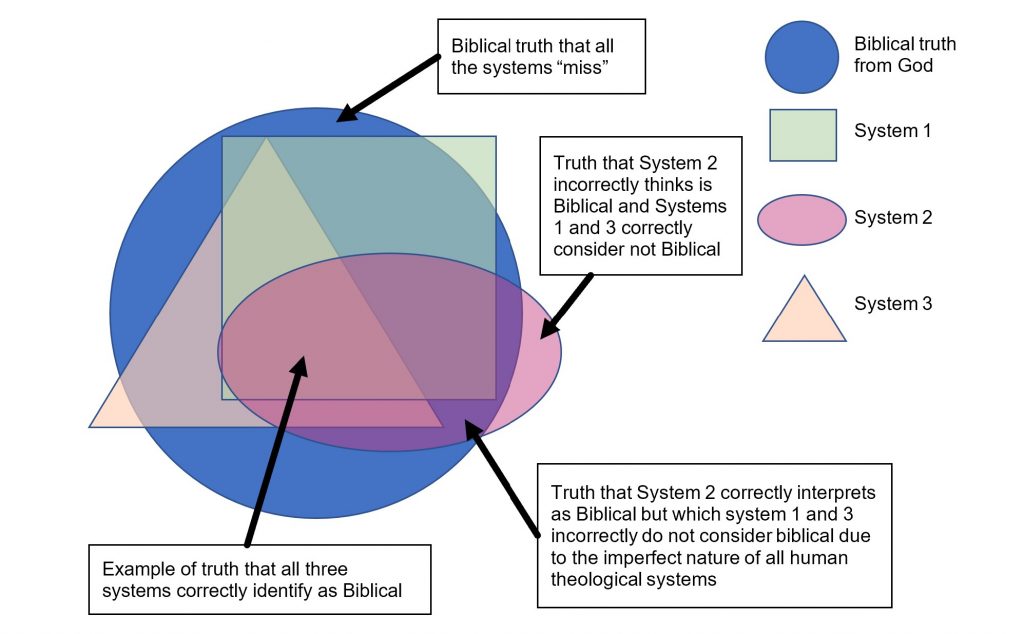Introduction
In the last few years, there has been a resurgence of theological interest in CCF. We noticed many theological discussions have been taking place, often about issues related to the centuries-old debate between Calvinism (or Reformed Theology) and Arminianism.
In many ways the CCF leadership is glad to see so many of our members, especially among our younger leaders, who have a sincere desire to study the Word of God and deepen our love and knowledge of God. This is something to celebrate!
At the same time, we recognize that the way some have pursued their theological interest has crossed the line between fruitful inquiry and study to unnecessary, and at times divisive, debate and contention.
The reason for this advisory is to give input and to provide pastoral guidance to CCF members through a clearer and more complete understanding of CCF’s position on some of the theological and practical issues that are being raised. We will also give some guidelines about what behavior is acceptable in Dgroups and CCF-sponsored activities, and what resources we recommend for those who desire to study these and other issues more carefully.
Initial Perspectives
Our human limitations
God gave us the accounts of Scripture from which we seek to understand who He is and how He wants us to live. Yet even with His revelation, we must accept that as human beings our understanding of His Word, even under the guidance of the Holy Spirit, is limited.
Within Scripture God reveals Himself so that, within our limited human capacity, we can understand who He is as “in a mirror dimly” (1 Corinthians 13:12). But certain things about Him remain a “mystery.” He reveals things that are true (for instance, that Jesus is both human and divine) but does not always reveal everything (for instance, how can Jesus be both human and divine at the same time?). Some things are simply beyond our capacity as humans to fully grasp.
When we approach the study of theology, we must accept first that we cannot fully comprehend God. God did not choose to give us a book on systematic theology or an encyclopedia of theological knowledge. He gave us the Bible, so we have everything we need to have faith in Jesus and follow Him. But He did not, nor is He obligated to, answer every question we have about His nature and character.
For us to understand God comprehensively, we would have to be God. And herein lies one of the dangers of theological study: when we presume to know everything about God, we are in danger of Satan’s first temptation: “…your eyes will be opened, and you will be like God…” (Genesis 3:4). We must guard against falling into the sin of pride as we seek to learn about God.
Our authority, the Bible
The Bible, not any theological system, or any human teacher or preacher, or any school or organization, is our final authority for what is true or right. For this reason, while we can learn from those other sources, we must always weigh their teaching against what is in the Bible (Acts 17:11).
When we hold up one system of theology, organization, or Bible teacher as being the one we follow, we are in danger of falling into the sin of the Corinthians: “… ‘I am of Paul,’ and ‘I am of Apollos,’ and ‘I am of Cephas,’ and ‘I am of Christ.’” (1 Corinthians 1:12). In CCF we have intentionally avoided association with any particular theology, organization or Bible teacher(s) because we always want Scripture, and Scripture alone, to be the basis for our faith.
Our calling as a Church
Finally, we should be reminded that CCF seeks to be faithful to its calling: to accomplish the mission and vision He has given to us. Our primary mandate is “to honor God and make Christ-committed followers who make Christ-committed followers.” If our interest, study, and debate of theological issues distracts us from following our mission and vision, or worse hinders others from wanting to follow Christ, we must question whether those are worth pursuing.
What are the issues?
Theological systems
Most of the present theological debates and discussions are about two theological systems: Calvinism and Arminianism (see the Addendum for a brief background and comparison of the two systems). Before getting into a discussion of which is more biblical, we first must answer two questions: “What are theological systems?” and “Are they necessary?”
Theological systems are attempts by theologians to organize and explain everything that can be known about God in a systematic way. Their proponents usually argue that their system is the best way to understand the nature of God, His creation, man and salvation. There are many theological systems, including Dispensational Theology, Lutheran Theology, Catholic Theology, Liberation Theology, Natural Theology, Covenant Theology, and others. Calvinism and Arminianism are two such theological systems.
One way to understand how theological systems work is through the following diagram. Granted that this is not a perfect illustration, it does highlight some of their strengths and limitations. Let’s say that the large circle represents everything in the Bible. The three shaded areas (the square, the triangle and the oval) represent different theological systems. Each of the three theological systems seeks to account for as much of the information revealed in the Bible as possible.
None of the systems can account for everything because of the natural limitations we have as people trying to interpret all the mysteries revealed in God’s word. In most cases, the systems also introduce things that are not explicitly in the Bible to make the system more coherent.


